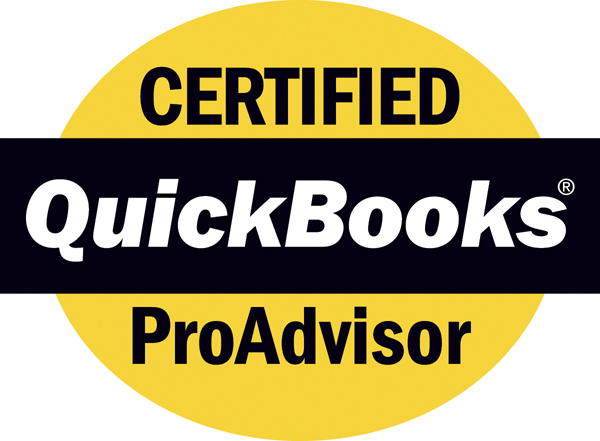Individuals who are unwilling or unable to sell their home, and need additional income during retirement, may benefit from a reverse mortgage. Payments received on a reverse mortgage are not taxable to the individual.
Tax-free income. A reverse mortgage can be used to generate tax-free income. Convert the equity built up inside your home into cash without having to sell the home. See Example #1, later.
Eliminate mortgage payments. A reverse mortgage can be used to pay off an existing mortgage, thereby creating a need for less income. See Example #2, later. This may benefit an individual who is considering retirement but does not currently have enough money to retire on. See Example #3, later.
Home improvements. A reverse mortgage can be used for home improvements and repairs. By making changes to the home, the individual can continue to live in the home rather than sell and move to a different location. This can be especially important to taxpayers who wish to keep the home in the family or have an emotional attachment to the home. See Example #4, later.
Applicable Tax Law
- Interest on a reverse mortgage is not deductible since it is considered home equity debt.
- Payments received from the reverse mortgage are not taxable.
- A reverse mortgage gives a monthly income, lumpsum payout, or a line of credit. No payment is due on the reverse mortgage until the home is sold, the owner dies, or the owner ceases to live in the property for a specified period of time.
• To qualify for a reverse mortgage, a homeowner must:
- Be 62 years of age or older,
- Own the property outright or have a small mortgage balance,
- Occupy the property as his or her principal residence, and
- Not be delinquent on any federal debt if it is a federally insured reverse mortgage.
- The amount loaned on a reverse mortgage is determined by the age of the youngest borrower, the current interest rate, the lesser of the appraised value or FHA mortgage limit, and the initial mortgage insurance premium.
- The loan is a non-recourse debt. The homeowner retains title to the home.
- To qualify, a property must meet all FHA property standards and flood requirements. The following eligible property types are eligible.
- Single-family homes.
- Multiple-unit home of 1-4 units with the eligible unit being occupied by the borrower.
- HUD-approved condominium.
- Manufactured home that meets FHA requirements.
• The income, lump-sum payout, or line of credit avail
able to the borrower is not taxable to the borrower.
- No income or employment qualifications are required of the borrower.
- No repayment of the reverse mortgage is needed as long as the property is the borrower's principal residence and the obligations of the mortgage are met.
- Closing costs may be financed in the mortgage.
Reverse Mortgages
Examples
The examples are for illustration purposes only. The actual amount of payment, line of credit, or lump sum depends on the location, appraisal value, age of the borrower and current interest rate. Only a mortgage contract can guarantee a payment, term, or interest rate.
Example #1: Louise, a single taxpayer age 64, owns her home. Her home is worth $175,000 and she owns it outright. Her monthly sources of income include Social Security of $1,250 and a pension of $1,400. She needs $3,000 per month to live on and has no other assets to generate income. Louise takes a reverse mortgage and receives a monthly payment of $505. The annual income from the reverse mortgage of $6,060 is not taxable. In addition, the reverse mortgage payment does not cause any of her Social Security benefits to be taxable.
Example #2: Jack, age 75, and Margaret, age 72, owe $20,000 on their current mortgage. Their home is worth $100,000 and their current payment on their mortgage is $700 per month. Jack and Margaret take out a lump-sum reverse mortgage of $20,000 and use it to pay off the $20,000 mortgage. They no longer have a house payment which frees up $700 per month. The amount used to pay off the original mortgage is not taxable for Jack and Margaret.
Example #3: William, age 65, is looking to retire. He is concerned that he needs to wait seven more years because his mortgage will not be paid off until then. He owes $65,000 on his current mortgage and his monthly payment is $900. His home is worth $225,000. In reviewing his anticipated retirement income and expenses, if he were to retire today, he would have a shortage each month of $400.
William decides to do a reverse mortgage to pay off his $65,000 mortgage. In addition, the reverse mortgage generates a monthly income of $288. Instead of waiting seven years to retire, William has the choice to be able to retire immediately.
| Income: | With Current Mortgage | With Reverse Mortgage |
| Pension | S500 | $500 |
| Social Security | $1,400 | $1,400 |
| Reverse mortgage | SO | $288 |
| Total Income | $1,900 | $2,188 |
| Expenses: | With Current Mortgage | With Reverse Mortgage |
| Mortgage | $900 | $0 |
| Other expenses | $1,400 | $1,400 |
| Total expenses | $2,300 | $1,400 |
| Shortage/surplus | ($400) | $788 |
Neither the lump sum nor the monthly income generated by the reverse mortgage is taxable to William.
Example #4: Hazel, a widow age 85, owns her home outright. She has lived in the two-story home for her entire adult life. The only bathroom in her house is on the second floor and she is having difficulty climbing the steps. She wants her daughter to eventually have the house, but is considering selling it to make her own living arrangements easier. Instead, Hazel takes a reverse mortgage, either a lump sum or line of credit. She uses the funds to remodel the first floor of her home by turning the den into a bedroom and adding a bathroom. The money Hazel receives from the reverse mortgage is not taxable to her.
Possible Risks
- The cost of financing the reverse mortgage can be very similar to the cost of purchasing a home.
- The reverse mortgage is generally required to be repaid within six months of the death of the last owner.
- When interest rates rise, the cost of the reverse mortgage may increase.
- Individuals seeking to qualify for public assistance may need to include income or assets generated from reverse mortgages.
- The death of one of the owners or borrowers can cause the reverse mortgage to become due, even though the surviving spouse wishes to continue to live in the home.
If the intent is to leave the house to the children, the parent may use up all the equity in the home.


